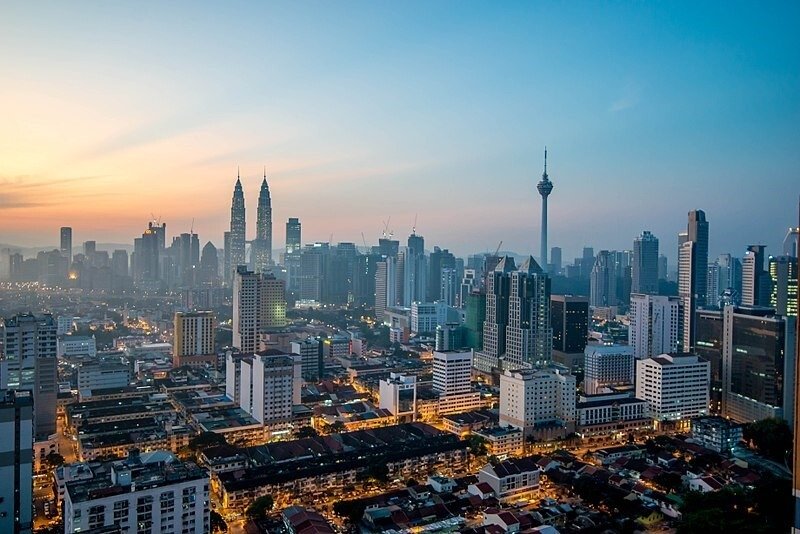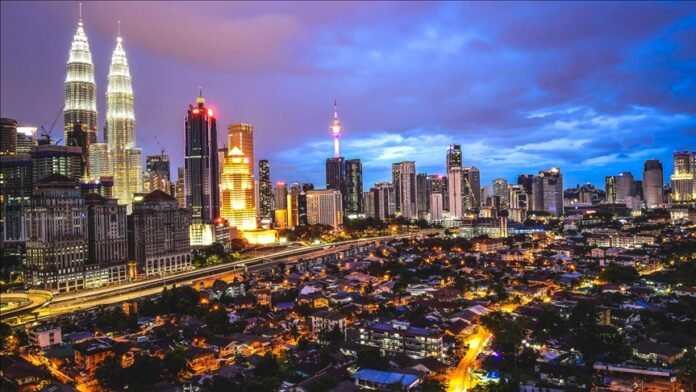The Historical Evolution of Malaysia
The history of Malaysia is a rich tapestry woven from diverse influences, with its roots tracing back to early settlements that facilitated trade and cultural exchange. The region saw the arrival of various indigenous groups and traders from across Asia, which set the stage for the development of complex societies. By the 15th century, the Malacca Sultanate emerged, becoming a significant trading hub and a melting pot of cultures, further promoting the spread of Islam in the region.
In 1948, the Federation of Malaya was established, uniting several states under a common administrative structure. This was a significant step towards the nation’s independence, which was pursued fervently in the years leading up to 1957. The struggle against British colonial rule was marked by political activism and social movements, illustrating the aspirations of the Malaysian people for self-governance. The eventual independence on August 31, 1957, marked a pivotal moment in the nation’s history, igniting national pride and cultural identity.
The formation of Malaysia in 1963 further expanded the nation’s borders and included the states of Sabah, Sarawak, and Singapore. This consolidation aimed to strengthen the economy and military defense against regional challenges. However, the union with Singapore was short-lived; it separated from Malaysia in 1965 after political and economic disputes. This separation had profound implications for both nations, influencing Malaysia’s quest for unity and development while shaping its national policies and strategies moving forward.
These historical milestones represent crucial turning points that have profoundly shaped Malaysia’s identity. Understanding this evolution provides insight into the complexities of Malaysian society today, highlighting the resilience and spirit of its people as they navigate their path toward a promising future.
The Diversity of Malaysian Society
Malaysia is renowned for its rich cultural diversity, which is a defining characteristic of its society. The population is primarily composed of four major ethnic groups: Malays, Chinese, Indians, and indigenous peoples known as Orang Asli. This demographic composition is a result of centuries of migration, trade, and colonization, creating a vibrant mix of traditions, languages, and customs that flourish together.
The Malays, forming the majority, are known for their varying dialects, customs, and traditional festivities, such as Hari Raya Aidilfitri, which celebrates the end of Ramadan. The Chinese community, largely descended from immigrants who arrived during the 19th and early 20th centuries, contributes to the cultural landscape with celebrations like Chinese New Year and the Mid-Autumn Festival. The Indian population, primarily Tamil, celebrates festivals such as Deepavali, showcasing their distinct culture and heritage. Additionally, the indigenous peoples of Malaysia add further depth to the cultural tapestry with their unique practices and beliefs, many of which are steeped in animism.
Religious diversity is also a significant aspect of Malaysian society, with Islam as the official religion, practiced predominantly by Malays. However, Buddhism, Christianity, Hinduism, and various indigenous faiths co-exist peacefully, fostering an environment of mutual respect and understanding among religious communities. This harmonious coexistence is celebrated through various public and cultural holidays, where people from different backgrounds come together, reflecting the nation’s commitment to unity in diversity.
Furthermore, Malaysia’s development milestones have underpinned this social fabric, particularly in areas such as economic growth, infrastructure, and education. Malaysia has made significant strides in modernizing its infrastructure, allowing for better connectivity among different regions, which in turn supports the interaction and integration of its diverse communities. Educational reforms have also played a crucial role in promoting inclusivity and a shared national identity. This ongoing journey of societal development continues to shape Malaysia’s future, emphasizing the importance of its diverse demographic.
Political Landscape and Governance in Malaysia
Malaysia’s political landscape is characterized by a multi-party system within a constitutional monarchy. The nation is governed under a parliamentary system, where the Yang di-Pertuan Agong serves as the ceremonial king, while the Prime Minister leads the executive branch. The political framework is anchored by the Federal Constitution, which outlines the separation of powers among the executive, legislative, and judicial branches, providing a foundation for democratic governance.
Historically, the United Malays National Organization (UMNO) has been a dominant force in Malaysian politics since independence in 1957, traditionally representing the Malay community. UMNO has been part of the Barisan Nasional (BN) coalition, which has controlled the government for decades. Another significant entity is the Malaysian Islamic Party (PAS), which promotes an Islamic-based political agenda. In recent years, the political landscape has become more fragmented due to the emergence of new coalitions and parties, such as Pakatan Harapan (PH), which gained prominence during the 2018 general elections, ending the long-standing rule of BN.
Key figures in Malaysian politics include the current Prime Minister and leaders of major political parties, who are pivotal in influencing policy and governance. Political dynamics have shifted notably, with various leaders advocating for reforms in governance and addressing pressing issues like corruption, economic disparity, and ethnic tensions. Corruption remains a critical challenge, influencing public trust and confidence in political institutions. Additionally, ethnic divisions continue to play a significant role in shaping Malaysia’s political affiliations and strategies.
Looking forward, the political climate in Malaysia is likely to evolve as calls for reform gain traction. Youth engagement and activism are increasing, highlighting the desire for transparency and accountability in governance. The complexities of race and religion in politics will remain central in future discourses, fundamentally influencing Malaysia’s governance and societal harmony.
Malaysia’s Role on the Global Stage
Malaysia, strategically positioned in Southeast Asia, has established itself as a vital player on the global stage. Its foreign policy, marked by a desire for peace and stability, emphasizes the importance of diplomacy and multilateral engagement. Malaysia’s participation in regional organizations such as the Association of Southeast Asian Nations (ASEAN) and the Non-Aligned Movement (NAM) underscores its commitment to fostering regional cooperation and maintaining balanced diplomatic relations among superpowers. This approach enables Malaysia to navigate complex geopolitical landscapes while safeguarding its national interests.
In recent years, Malaysia has actively engaged in international organizations, including the United Nations and the World Trade Organization, advocating for equitable global trade practices and climate action. As a member of these bodies, Malaysia addresses pressing global challenges such as climate change, emphasizing sustainability and environmental conservation. The country faces significant hurdles, including managing its natural resources responsibly while also responding to the increasing threats posed by global warming. Moreover, Malaysia’s commitment to the Paris Agreement highlights its intention to play an active role in combating climate change through collective international efforts.
However, Malaysia’s geopolitical landscape is not without challenges. The rise of economic competition, particularly from neighboring countries, adds pressure to maintain its competitive edge. Additionally, regional tensions often arise from territorial disputes, necessitating careful navigation to uphold Malaysia’s sovereignty while promoting regional stability. As these dynamics continue to evolve, Malaysia’s future in global politics appears promising yet complex.
Looking ahead, Malaysia is poised to enhance its role in trade and international cooperation, with a focus on building resilient supply chains and fostering sustainable practices. As the world becomes more interconnected, Malaysia’s ability to effectively engage in diplomacy will be critical to addressing emerging challenges and seizing new opportunities on the global stage.



